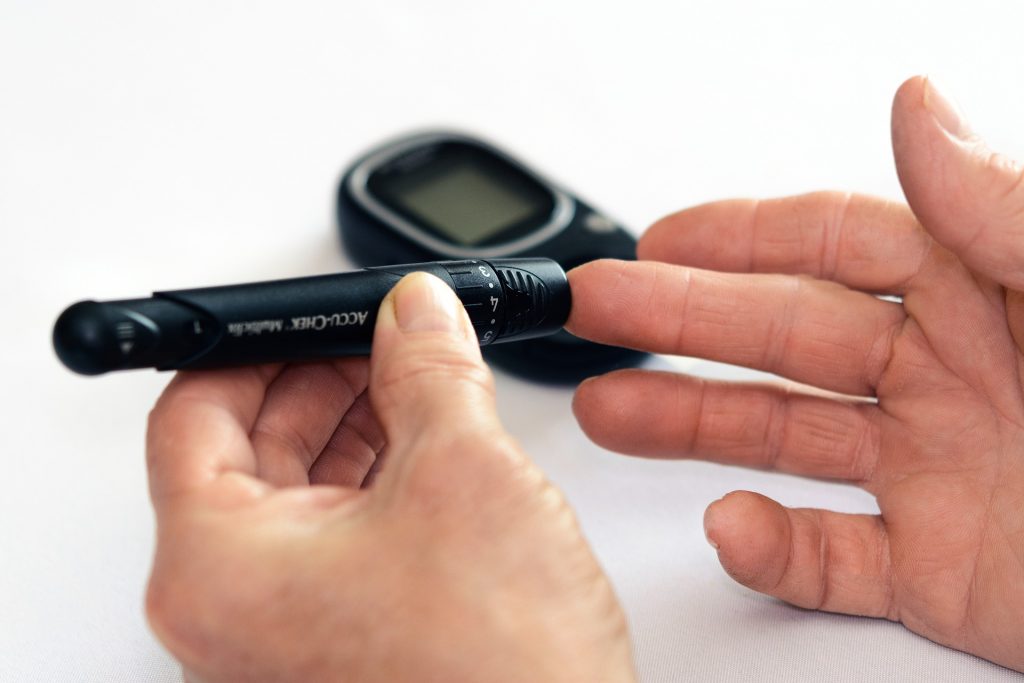Blood Sugar Dysregulation: An Increasingly Common and Concerning Problem

Have you had your blood sugar checked recently? If you haven’t you should. Blood sugar problems are epidemic in the United States. One in five children is now prediabetic along with one in four young adults (Andes 2019). Prediabetes and blood sugar problems are the precursor to diabetes and a host of other health problems.
As a person starts to develop blood sugar problems, insulin levels, the hormone that controls blood sugar, starts to rise. Higher insulin (insulin resistance) is a major dysregulator of hormones in general. In men, high insulin causes low testosterone. In women you see the opposite, higher insulin raises testosterone (Lutz 2019).
Blood sugar problems, more than just a risk for diabetes
Insulin resistance is not just correlated with diabetes, it also correlates with heart disease, alzheimer’s dementia, arthritis and cancer (Milner 2007, Ferreira 2018, Orgel 2014, Griffin 2016). Evidence has even emerged that insulin resistance and blood sugar problems may be a cause of the aging process itself (Akintola 2015). One of my primary strategies to help patients maintain or improve their health is to better control blood sugar levels through diet, exercise and other measures.
So what causes insulin resistance?
Some of the main modifiable causes of insulin resistance include:
- Diet
- Physical activity
- Stress
- Sleep
- Toxicity
Diet

If you’re overweight, ANY diet that helps you lose weight will help you improve blood sugar handling. From a weight loss perspective, eating non-processed foods should be a basic component of most successful dietary strategies (Hall 2019). Processed foods should be limited, including chips, bread, cereal (and granola), baked goods, candy, ready-made meals, crackers, milk and milk products, soda and processed meats.
Basic advice, like eating plenty of fruits and vegetables, whole grains and fiber can go a long way to help prevent and reverse insulin resistance (Golabek 2019). There’s also solid evidence for eating more calories earlier in the day and a protein rich breakfast. One study showed that women who made breakfast their largest meal and supper their smallest had an impressive 50% decrease in insulin levels (Jakubowicz 2013).
Physical activity

Exercise allows your body to use the calories from food so you don’t store them. It also improves insulin functioning. You don’t necessarily have to go to the gym and pump iron, even small amounts of exercise can be helpful. A 20 minute walk after a meal has been shown to improve blood sugar levels (Colberg 2009).
Stress
Stress causes havoc with our health and blood sugar problems are no exception. Studies show that stress alone can cause the development of blood sugar problems (Yan 2016). Having strategies to help mitigate stress in your life is crucial to staying healthy. Exercise, yoga, tai chi, qigong, meditation, taking vacations and spending leisure time with friends and family are a number of different approaches that can help mitigate stress.
Sleep
Poor sleep has a powerful negative impact on blood sugar levels (Grandner 2016). Improving sleep quality actually helps lower stress hormones and control blood sugar (Tan 2018). If you snore, you never feel rested or you wake up repeatedly throughout the night, it might be worthwhile to get a sleep study.
In addition, there are simple lifestyle strategies that may help improve sleep (Irish 2015):
- Go to bed at approximately the same time each night
- Do not drink alcohol or smoke before bed
- Be mindful of caffeine, as it can disrupt sleep even if consumed earlier in the day
- Don’t eat a large meal before bed
- Turn off your television, computer and cell phone for at least an hour before bed
- Don’t nap during the day
- Reduce bedroom noises; if needed, use a white noise machine to cover noise
Toxicity
Everything that we generally think of as toxic worsens blood sugar handling and insulin resistance. Heavy metals, pesticides, plasticizers, fluorinated compounds (found in stain resistant fabrics), solvents and others all have detrimental effects on blood sugar (Maqbool 2019, Lakshmi 2019, Hong 2017, Fassler 2019, Won 2011). Using non-toxic products around the home and for skin care can help decrease exposure.
Conclusions
Blood sugar problems aren’t just the cause of diabetes, they lead to numerous health problems and in general accelerate the aging process. Implementing strategies to maintain healthy blood sugar levels can help mitigate a myriad of common health conditions helping you to live a longer and healthier life.




Like!! Great article post.Really thank you! Really Cool.
Hey There. I discovered your weblog the usage of msn. This is a very well written article. I will make sure to bookmark it and come back to learn more of your helpful info. Thank you for the post.
I’ll certainly comeback.
Excellent write-up. I certainly appreciate this website.
Keep it up!